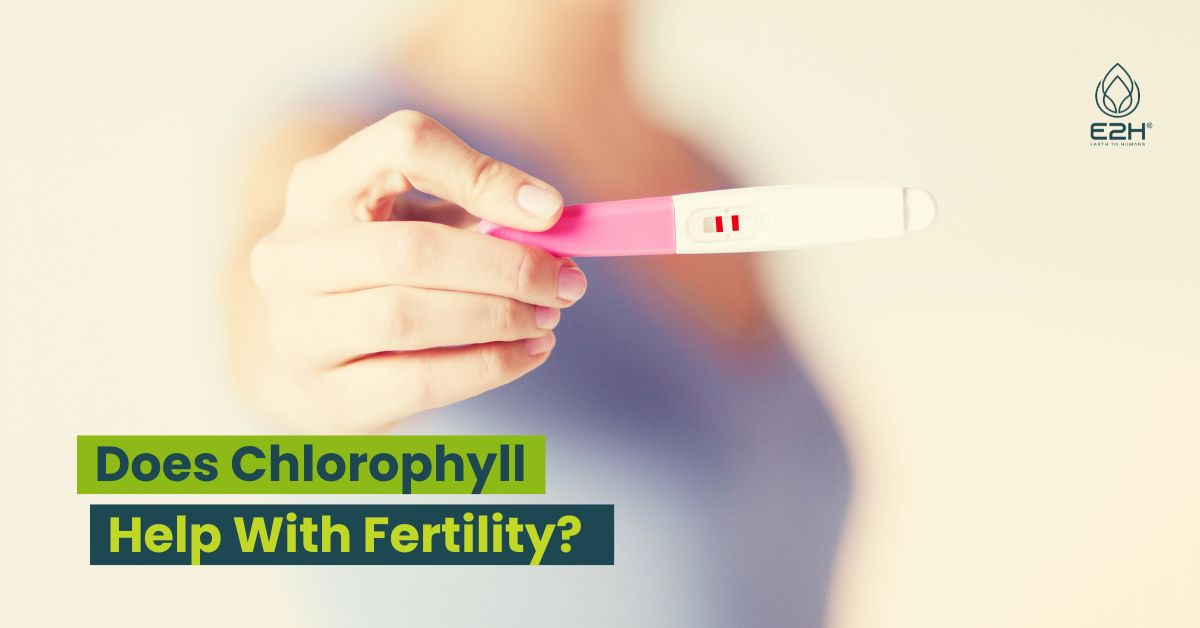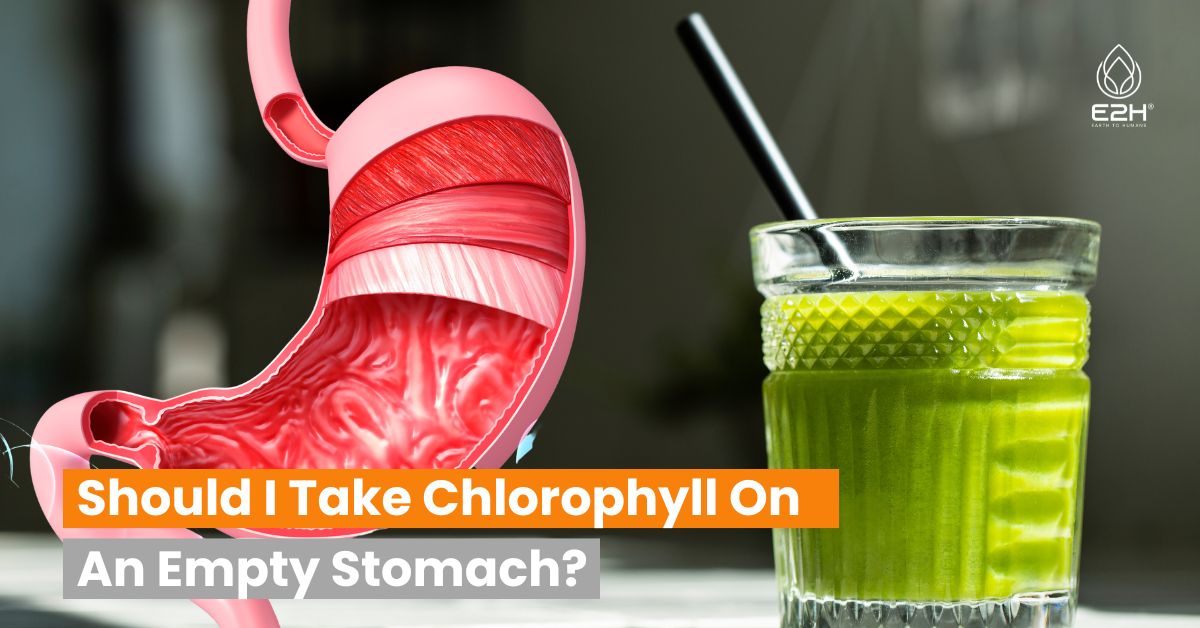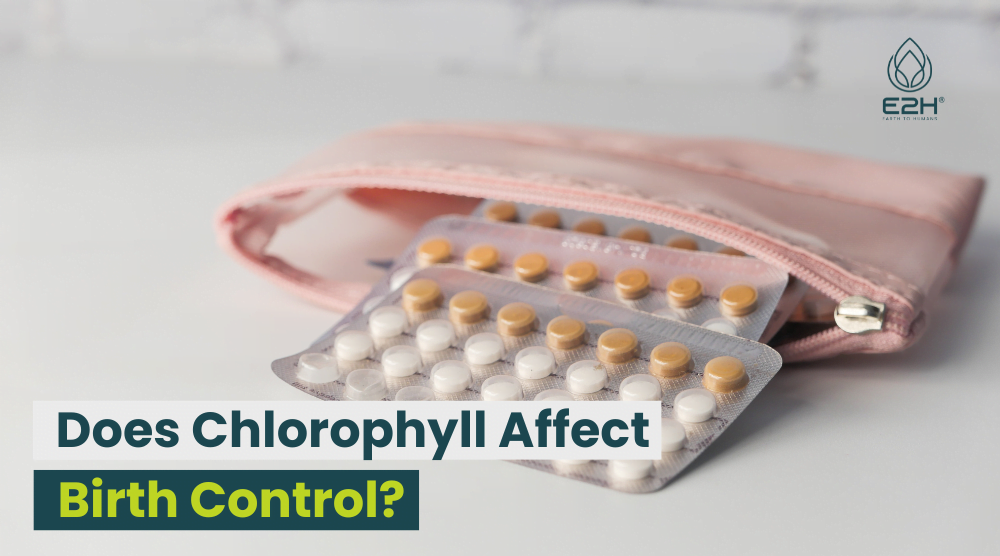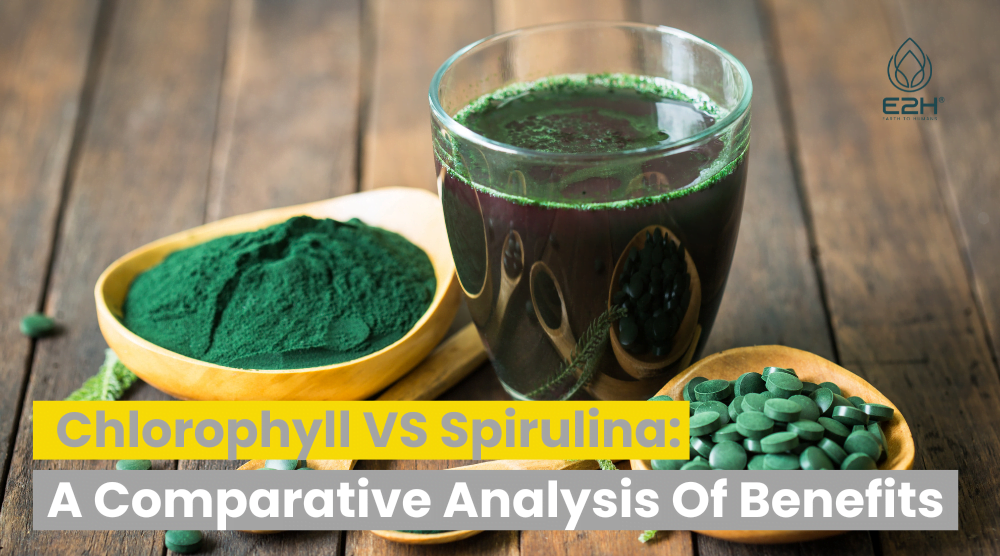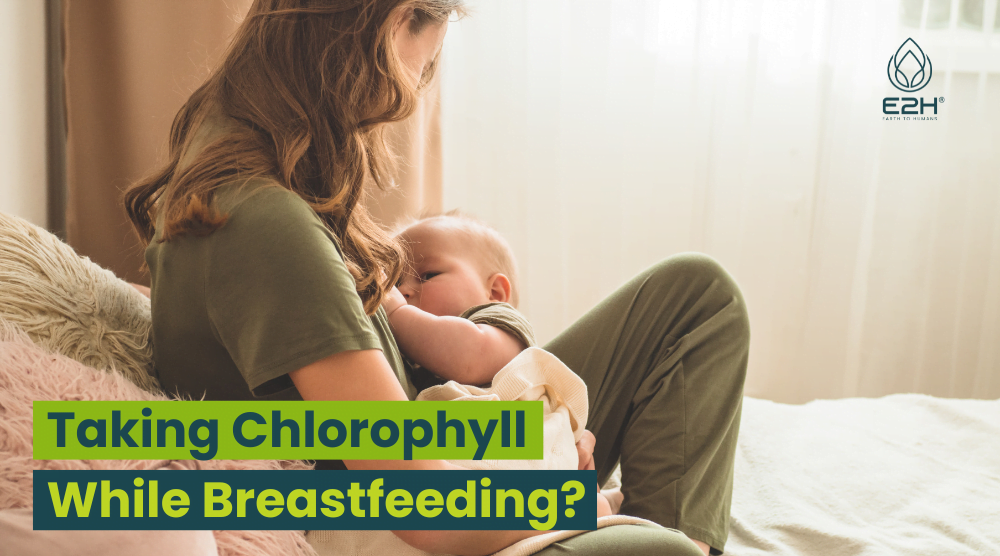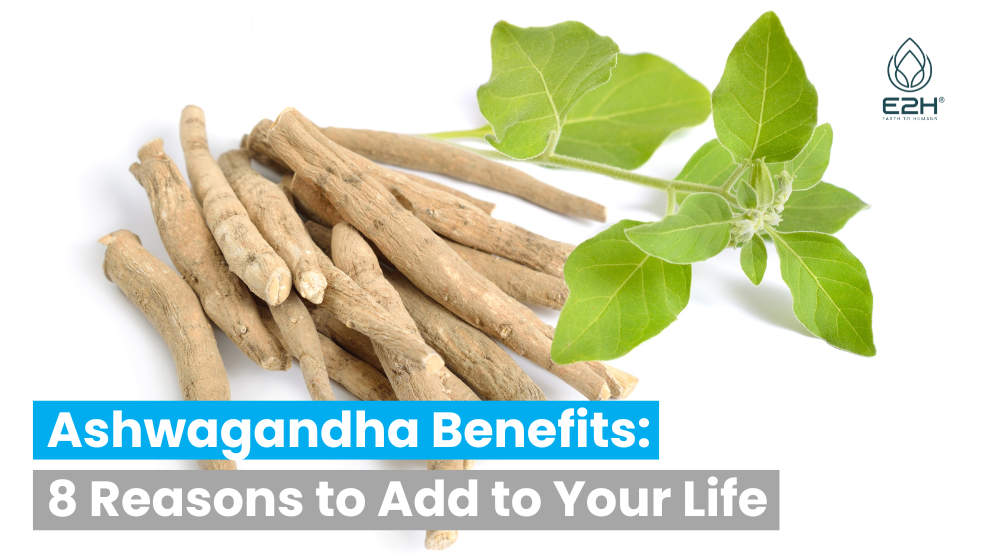Does Chlorophyll Help With Fertility: There is currently no scientific evidence to support the claim that chlorophyll can improve fertility. While chlorophyll is a nutrient-rich compound that can offer several health benefits, there is only reason there is no research to suggest it has a direct impact on fertility in either men or women.
How does chlorophyll work in the body?
Chlorophyll is a nutrient-rich compound that is rich in antioxidants, vitamins, and minerals. It has been shown to have anti-inflammatory and detoxifying and antioxidant properties too. In the body, chlorophyll may help to neutralize free radicals, which can damage cells and contribute to chronic diseases.
Additionally, some research suggests that chlorophyll may help to improve digestion, keep weight gain promote wound healing, and support the body and immune system to function. However, more research is needed to fully understand how chlorophyll works in the body and the extent of its health benefits.
The link between chlorophyll and fertility
While chlorophyll is a nutrient-rich compound that can offer several health benefits, there is currently no evidence to support the claim that chlorophyll can improve fertility in either men or women. Although chlorophyll may indirectly support fertility by improving overall health and wellness, there is no direct link between chlorophyll consumption and fertility.
However, some studies have shown that certain nutrients found liquid chlorophyll or in a liquid chlorophyll, supplement, such vital nutrients such as folate, may play a role in fertility. Folate is important for the production of DNA and cell division, and a deficiency in folate has been linked to infertility in both men and women. Chlorophyll-rich foods, such as leafy greens, are a good source of liquid chlorophyll, supplement and folate.
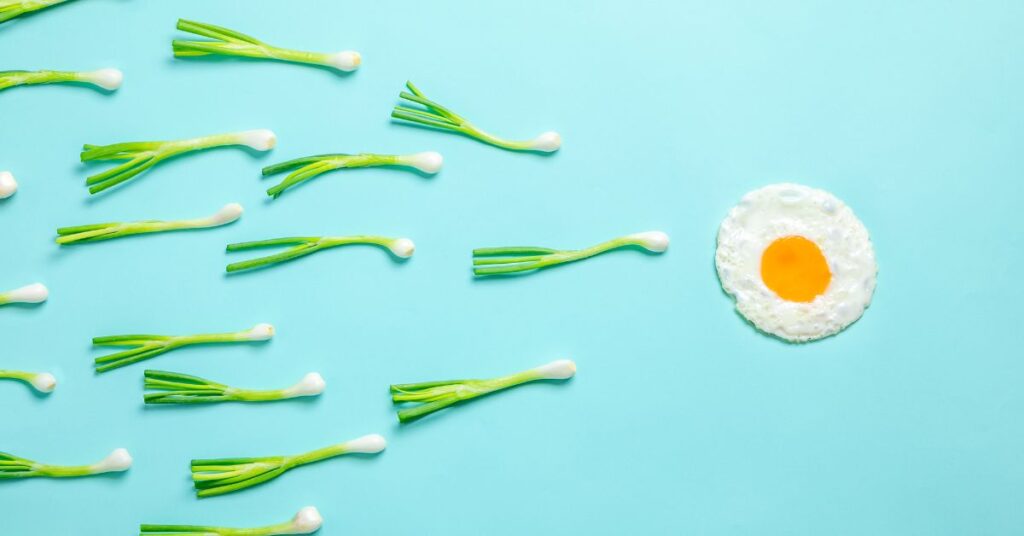
While chlorophyll-rich foods can offer several health benefits and may indirectly support fertility, there is no direct link between chlorophyll consumption and nutritional diet and improved fertility. It is important to focus on maintaining a healthy and balanced diet, including a variety of nutrient-rich foods, to support overall health and promote fertility itself.
Can chlorophyll improve male fertility?
There is currently no evidence to suggest that chlorophyll can improve male fertility. While some nutrients found in chlorophyll, such as folate and antioxidants, may play a role in male reproductive health, there is no direct link between chlorophyll consumption and improved male fertility.
It is important to maintain a healthy and balanced diet, including a variety of nutrient-rich foods, to support overall health and wellness, which can indirectly contribute to improved male fertility. However, it is important to consult with a healthcare professional if you have concerns about male fertility or are experiencing fertility issues.
Can chlorophyll improve female fertility?
There is currently no evidence to suggest that chlorophyll can improve female fertility. While some nutrients found in chlorophyll, such as folate and antioxidants, may play a role in female reproductive health, there is no direct link between chlorophyll consumption and improved female fertility.
It is important to maintain a healthy and balanced diet, including a variety of nutrient-rich foods, to support overall health and wellness, which can indirectly contribute to improved female fertility. However, it is important to consult with a healthcare professional if you have concerns about female fertility or are experiencing fertility issues.
How to consume chlorophyll for fertility?
While there is no direct evidence to suggest that consuming chlorophyll can improve fertility, including chlorophyll-rich foods in your diet can offer several health benefits that may indirectly support fertility. Here are some ways to consume chlorophyll for overall health boost fertility, and wellness:
- Eat leafy green vegetables: Dark leafy greens like spinach, kale, and collard greens are excellent sources of chlorophyll. Add them to salads, smoothies, soups, or stir-fries to increase your intake.
- Consider chlorophyll supplements: Chlorophyll supplements are available in various forms, including capsules, tablets, and liquids. It is important to choose high-quality supplements from reputable sources and follow the recommended dosage.
- Drink chlorophyll water: Chlorophyll water is made by adding chlorophyll drops to water. It is claimed to offer several health benefits, including improved digestion and detoxification.
- Try chlorophyll-rich foods: Other foods that are rich in chlorophyll include spirulina, chlorella, and wheatgrass. These can be consumed in supplement form or added to smoothies or juices.
Wheat Grass Juice for Fertility
Wheat or barley grass, is a nutrient-dense plant that can provide numerous health benefits, including boosting the immune system and reducing inflammation, there is no research to suggest that wheat or barley grass can improve fertility. If you are struggling with fertility, it is important to consult with a healthcare professional to explore evidence-based treatments and interventions. While wheat or barley grass juice may be a nutritious addition to your diet, it should not be relied upon as a sole solution for fertility issues.
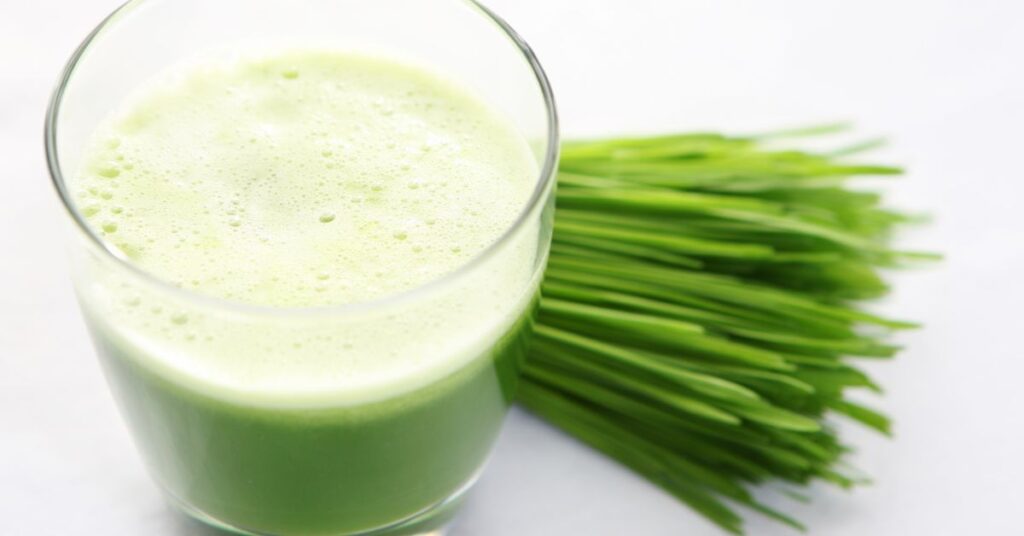
How can I make my womb more fertile?
There are several ways to increase the fertility of your womb. Firstly, it is essential to maintain a healthy lifestyle by eating a balanced diet, getting regular exercise, and avoiding smoking and alcohol consumption. Secondly, maintaining a healthy weight is crucial, as being either underweight or overweight can negatively impact fertility.
Another important factor to boost fertility, is to track your menstrual cycle and ovulation. Knowing when you are most fertile can increase the chances of conceiving. You can use an ovulation kit or track your basal body temperature to determine your most fertile days.
Taking prenatal vitamins and taking supplements, that contain folic acid and other essential nutrients can also help improve fertility. It is also important to manage stress and energy levels, and avoid exposure to harmful chemicals and environmental toxins too.
In some cases, medical treatment may be necessary to increase fertility, such as medication to regulate ovulation or assisted reproductive technologies. However, many women are able to improve their fertility naturally by making healthy lifestyle choices and tracking their menstrual cycle. Remember, making positive changes to your lifestyle can not only increase fertility but also improve overall health and well-being.
What does chlorophyll do for pregnancy?
Chlorophyll is a natural green pigment often found in plants that gives plants and them the plants their dark green back color. While it has been touted as a food supplement with numerous health benefits, there is limited research on the specific effects of chlorophyll during pregnancy.
While chlorophyll does contain vitamins and antioxidants that are beneficial for the body and overall health, there is not enough evidence to support its use during pregnancy. In fact, some studies suggest that high doses of chlorophyll may interfere with the absorption of iron, which is an essential nutrient for the developing fetus.
It is important for pregnant women to focus on a balanced and nutritious diet, including plenty of fruits and vegetables that naturally contain chlorophyll, rather than relying on supplements. It is also crucial to consult with a healthcare provider before taking any new supplements during pregnancy.
In short, while chlorophyll may have potential health benefits, there is no evidence to suggest that it specifically benefits pregnancy. It is best to focus on a well-balanced diet and consult with a healthcare provider to ensure the health and safety of both the mother and developing fetus.
Does chlorophyll help with implantation?
No, there is no evidence to suggest that chlorophyll can help with implantation. The process of implantation is complex and involves various other factors too, such as the quality of the embryo and the health of the uterine lining. While chlorophyll has antioxidant and anti-inflammatory properties, there is no research to suggest that it can directly impact the implantation process. It is best to focus on maintaining a healthy lifestyle and seeking medical advice if experiencing fertility issues.
Why You May Want To Avoid Liquid Chlorophyll Supplements?
While liquid chlorophyll is a natural green pigment found in plants and has some potential health benefits, it is important to exercise caution when considering liquid chlorophyll supplements. Firstly, the quality and purity of liquid chlorophyll supplements may vary greatly. Some supplements may contain contaminants or impurities that can be harmful to your health. Secondly, high doses of liquid chlorophyll may cause side effects such as diarrhea, nausea, and vomiting. In rare cases, it may even cause allergic reactions.

Furthermore, the liquid form of taking chlorophyllin supplements may interact with certain medications, including blood thinners and birth control pills. It is important to consult with a healthcare provider before ever taking liquid chlorophyllin or any new supplements, especially if you are taking prescription medications. Lastly, it is important to note that taking chlorophyll-rich foods, such as leafy greens, is a safer and more natural way to obtain the potential health benefits of chlorophyll.
4 Easy Ways To Get More Natural Chlorophyll Into Your Diet
Getting more natural chlorophyll into your diet can be an easy and delicious way to improve your overall gut health. Here are four simple and healthy ways to incorporate more chlorophyll-rich foods into your diet:
- Eat More Leafy Greens: Leafy greens, such as spinach, kale, and collard greens, are excellent sources of chlorophyll. Add these greens to your salads, smoothies, or sauté them as a side dish.
- Snack on Chlorophyll-rich Vegetables: Vegetables like cucumber, asparagus, green beans, and broccoli contain high levels of chlorophyll. Slice them up and enjoy them as a snack or add them to your meals.
- Drink Green Smoothies: Blend together spinach, kale, cucumber, and other chlorophyll-rich greens with fruits like banana, berries, and apple to create a tasty and nutritious green smoothie.
- Enjoy Chlorophyll-rich Beverages: Chlorophyll can also be found in certain beverages, such as green tea and wheatgrass juice. Add these beverages to your diet to increase your intake of chlorophyll.
Incorporating these simple tips into your diet can help you increase your intake of natural chlorophyll, which can provide your body with numerous health benefits, including detoxification, improved food digestion, more energy, and weight loss and reduced inflammation.
Secrets to a Healthy Pregnancy – Liquid Chlorophyll
FAQs
Can chlorophyll supplements improve fertility?
There is no evidence to support the claim that taking chlorophyll as food supplements can improve fertility. It is best to consume chlorophyll through natural food sources such as fish oils and as plants such as green leafy vegetables.
Can consuming too much liquid chlorophyll be harmful?
Consuming chlorophyll-rich foods nutritional supplements dark as green vegetables, in moderation is generally safe. However, consuming excessive amounts of chlorophyll supplements or green juices can cause side effects such as diarrhea, nausea, and stomach cramps.
Can consuming chlorophyll help with male fertility?
There is some evidence to suggest that consuming foods rich in antioxidants, such as chlorophyll, can improve sperm quality and motility in men. However, more research is needed to establish a direct link between chlorophyll consumption and male fertility.
Conclusion
I think you got the answer of ‘Does Chlorophyll Help With Fertility?’ this question. So, there is no direct evidence to support the claim that chlorophyll can improve fertility. However, consuming chlorophyll-rich foods as part of a balanced diet can support overall health, which may indirectly contribute to improving fertility. Additionally, chlorophyll is rich in vitamins, minerals, and antioxidants, which can support reproductive health.
